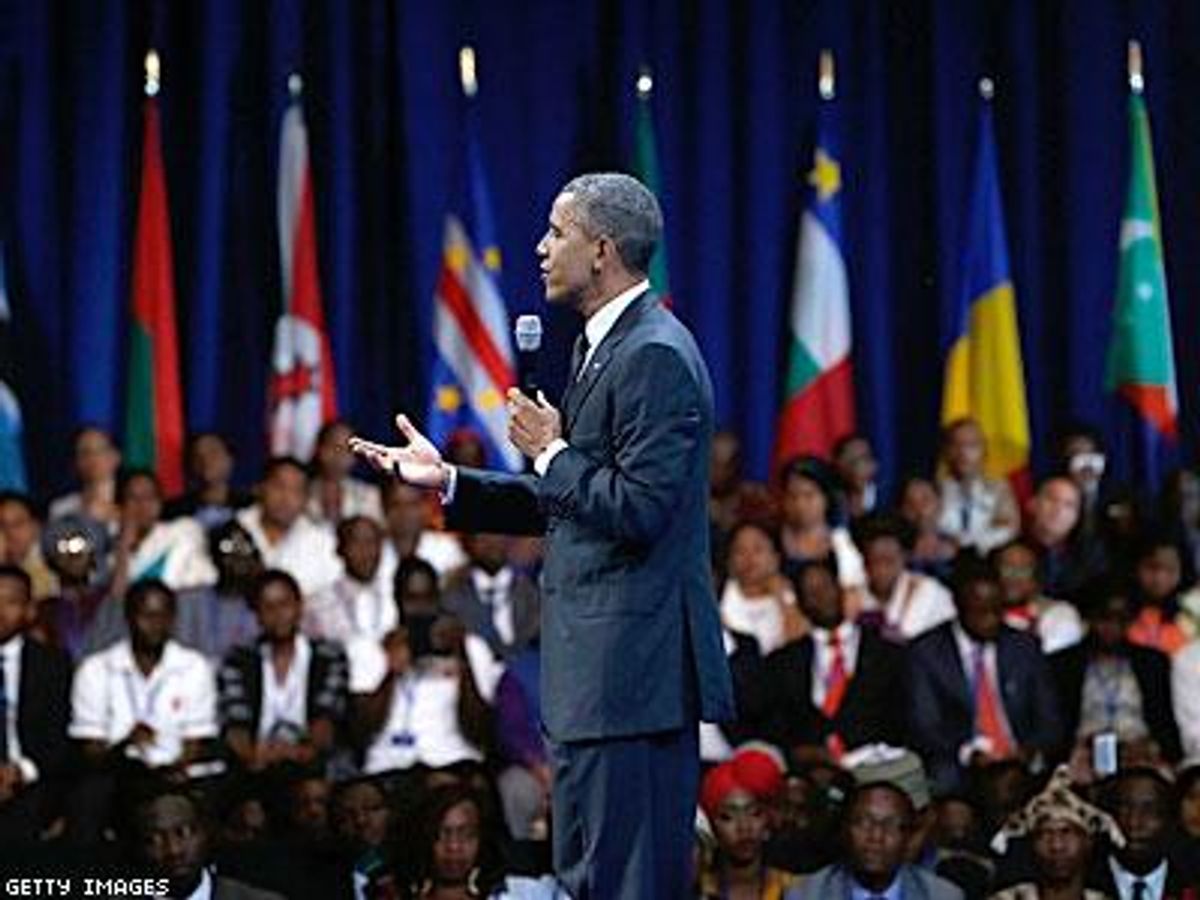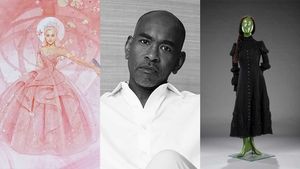As the historic first U.S.-Africa Summit kicked off in Washington, D.C., on Monday, several LGBT and human rights groups weighed in with skepticism -- but also a measure of hope -- that the event would also make history in its call for LGBT equality in Africa.
"This historic gathering will serve as an opportunity to stress the importance of human rights protections at a time when we see a backsliding of LGBT protections internationally," Sen. Ed Markey, a Democrat from Massachusetts, wrote in a letter to President Barack Obama signed by him and more than two dozen other members of Congress in advance of the summit. "It also provides an opportunity to make clear that the persecution of LGBT individuals is bad for business and undermines investment in Africa."
In June, Markey introduced the International Human Rights Defense Act, which supporters say would put unprecedented pressure on homophobic leaders and dictators in other countries to respect the rights and dignity of their LGBT populations.
Now in the second of a three-day series of talks, working sessions, press conferences, and various gatherings among business, military and governmental leaders from the U.S. and from the African continent, the summit is aimed at strengthening existing intergovernmental alliances, while also finding new opportunities for American and African companies and countries to increase economic ties.
Two LGBT and human rights rights heavyweights joined forces to set the tone for the historic summit from the perspective of non-governmental organizations deeply engaged in protecting and promoting the ideals of equality and dignity for LGBT people around the globe.
"More than 800 million people live in African nations that criminalize LGBT individuals because of who they love or who they are," noted Ty Cobb, the Human Rights Campaign Foundation's director of global engagement in a statement. "Many face near-constant threats of harassment, discrimination, prosecution and violence on a daily basis, and others remain vulnerable to increasingly dangerous and concerted efforts to enact harsh anti-LGBT legislation. Supporting the human rights of all Africans, including LGBT Africans, must be an important part of our nation's engagement."
In a new report issued a week prior to the summit and only days before Uganda's Constitutional Court overturned the country's seven-month old antigay law, HRC and Human Rights First are highly critical of African governments that enforce such laws.
The report, titled The State of Human Rights for LGBT People in Africa, was issued alongside a joint statement going into the U.S.-Africa Summit.
"We know that there are thousands of people across the African continent who are standing up for an end to violence and for full equality for all people, regardless of sexual orientation or gender identity," said Human Rights First's Shawn Gaylord in that statement. "These people, activists, leaders, lawyers, religious figures and others, need to know that they have support around the world and this Summit is an ideal time to signal that support."
In reality, the summit is likely to focus heavily on economic investments, as the U.S. will announce just under $1 billion in new commercial activity between the U.S. and African nations before the summit ends tomorrow, according to Voice of America. In the run-up to the summit, U.S. agencies already committed more than $7 billion to add 10,000 new megawatts of electricity to service 20 million new customers in Africa by 2017.
American Jewish World Services, which has long been a vocal supporter of LGBT equality, also weighed in on the groundbreaking summit.
"The future of Africa depends on the commitment of its leaders to ensure the human rights of all of the continent's people, including women and girls; LGBT people; and communities whose access to land, air and water is threatened by unbridled development," said Ruth Messinger, president of AJWS, in a statement. "There is no more powerful investment in any people or continent than the investment in human rights."












































































